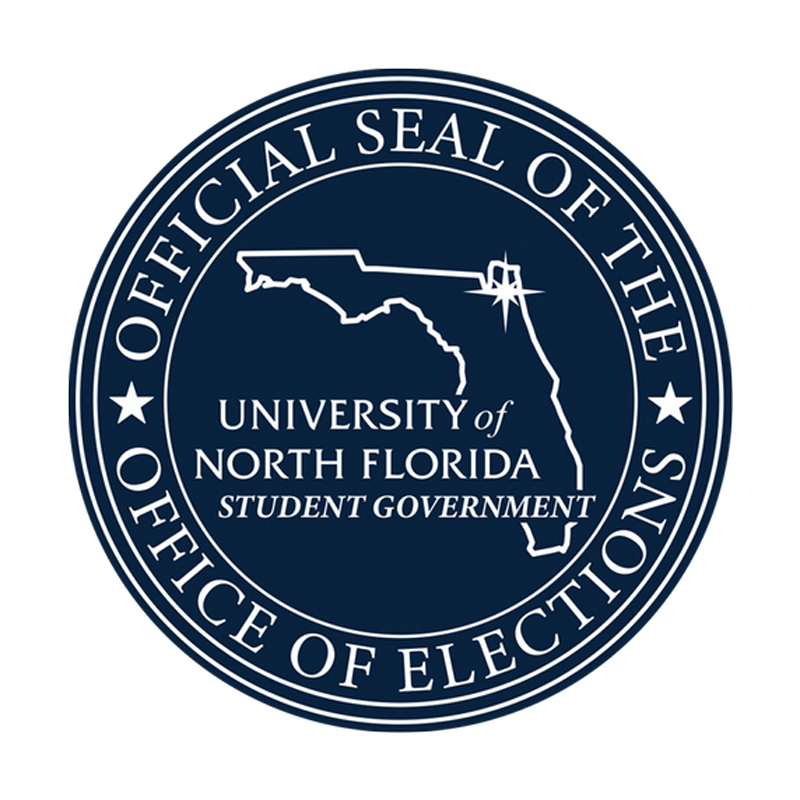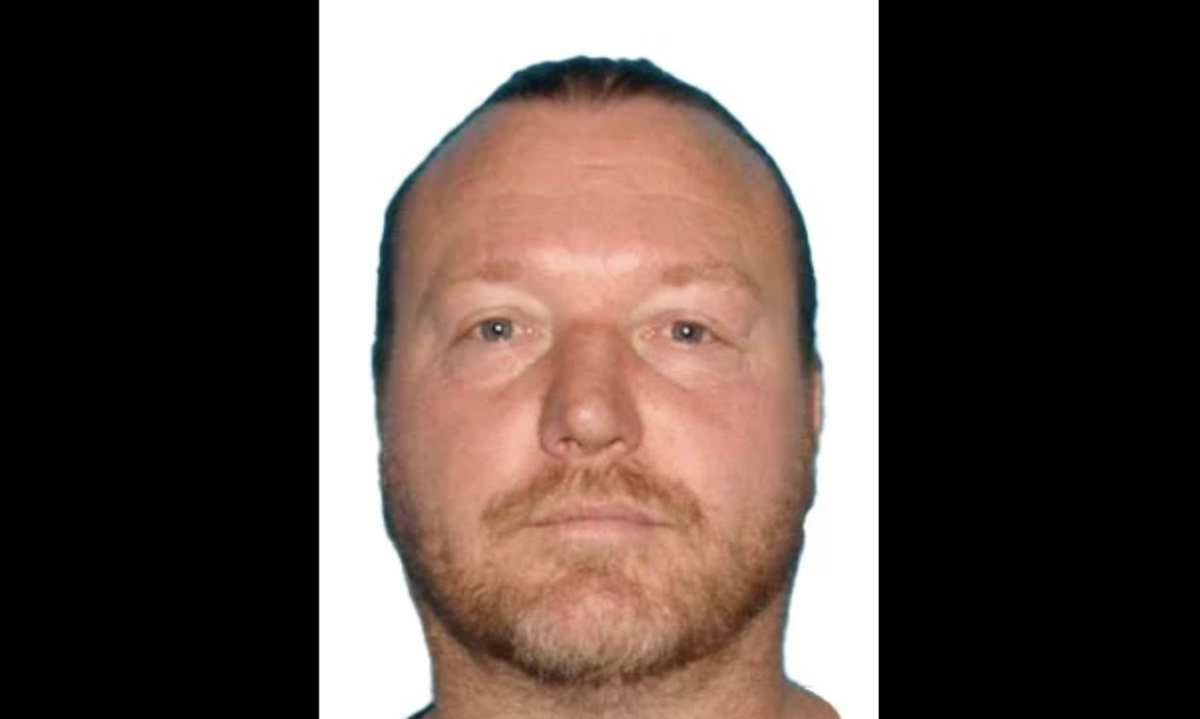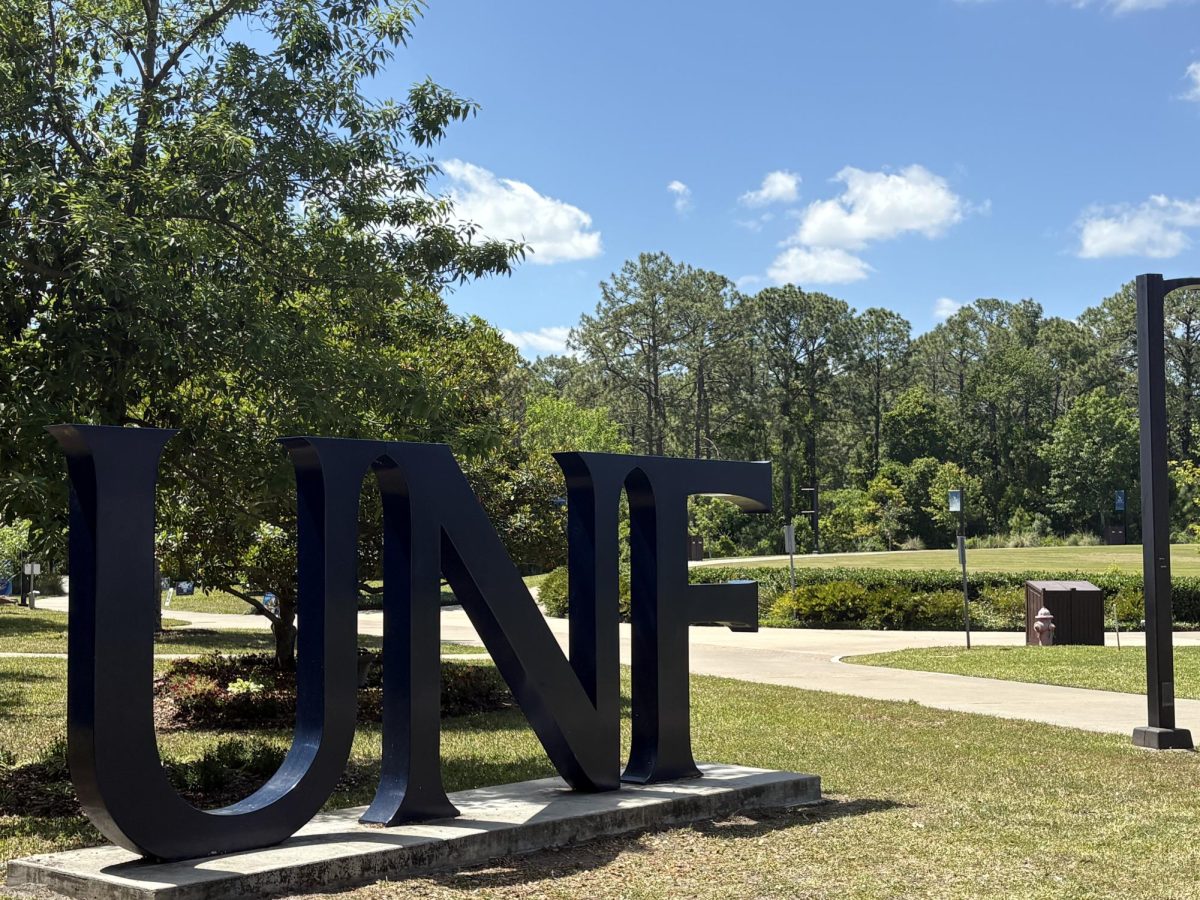At an Atlantic Beach crosswalk March 31, 2010, Ashley Stump pressed the button, the walk light turned on and she started pedaling her bicycle across Fairway Villas Lane.
She said it was then an Atlantic Beach Police patrol car pulled forward, and the two collided. Stump was knocked off her bicycle, which was then lodged under the tire of the patrol car.
The accident set into motion events that would lead to an internal affairs investigation July 15, 2010, showing evidence that the officer violated city and department policies.
The same day, the officer, Sgt. Gustav Carlson, turned in his letter of resignation.
University of North Florida Police hired Carlson less than three months later, and he now works as a Traffic Officer at UNF.
Carlson worked with UNF police once before — the second hiring might have been problematic.
The Florida Department of Law Enforcement lists “false statements during the employment process” as a violation carrying the penalty of “suspension to revocation.”
The internal investigation shows after FHP and an engineer looked into it and determined a collision had occurred, they interviewed Carlson a second time. Carlson agreed “a traffic crash occurred” and resigned the same day.
However, according to UPD Police Chief John Dean, when Carlson interviewed with him three months later to return to UPD, Dean says he was told by Carlson he didn’t think he hit Stump.
UPD reviewed the report. Dean said he chose to believe Carlson and hired him.
”It was a judgment call at that point based on his prior record,” Dean said. “We gave him the benefit of the doubt.”
Florida Department of Law Enforcement code of conduct states, “Law enforcement effectiveness depends upon community respect and confidence.”
On August 21, Spinnaker News contacted Barbara Dupuis, UPD Office Manager, requesting to speak to Carlson. On September 1, Spinnaker News attempted to contact Carlson directly through his email listed on the UPD Staff Directory. Neither Dupuis nor Carlson responded to that request.
Spinnaker News obtained copies of the internal affairs investigation and interviewed Stump.
Stump was riding her bike down Mayport Road the morning of March 31, 2010.
According to Stump, she saw the stopped patrol car and Carlson on his laptop just before the accident occurred. Stump said the accident knocked her to the ground, scraping her arms and legs.
Carlson then took Stump and her damaged bicycle back to her home. The officer did not apologize but did warn her of the danger of riding a bicycle on the sidewalk.
According to the Atlantic Beach Police department, cyclists are supposed to use roads or bike lanes.
Stump said a relative saw her damaged bicycle and called police to ask about the accident.
This is where the internal affairs investigation began — the summary says Carlson did not report the accident to his supervisor.
Atlantic Beach Police cars are equipped with Fleetmatics, a type of GPS tracker. According to the investigation, data from the Fleetmatics system showed Carlson was at the location when Stump said she was hit.
With the GPS data, Atlantic Beach Police believed it was possible an accident did happen and Florida Highway Patrol begun the investigation. According to the investigation, FHP was asked instead of the Jacksonville Sheriff’s Office to ensure the investigation was objective. Carlson had previously been employed by JSO.
Florida Highway Patrol completed a report of the traffic accident. The report said, “…due to conflicting statements and a lack of independent witnesses no charges were filed.”
According to the investigation, a detective photographed Stump’s bicycle and injures on the following day, as well as the undercarriage of the patrol car.
The investigator conducted an interview of Carlson under oath. According to the investigation, Carlson said Stump fell off her bike, which then hit a curb.
A private engineering report was conducted, analyzing both Stump’s and Carlson’s accounts. The investigation states that the engineer believed an accident happened between the bike and the patrol car and determined that Stump’s account “…gave the most plausible explanation for the mechanism of the crash.”
Eight days after the engineering report was received, Carlson was interviewed a second time. At this time, the report reads, “Carlson agrees that his vehicle and Miss Stump’s bicycle collided and that a traffic crash occurred.”
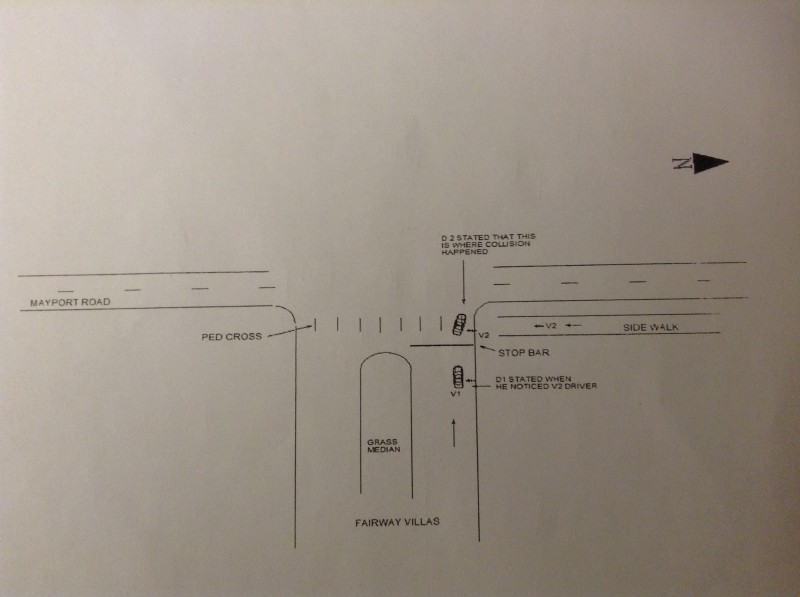
According to the internal affairs report, Carlson violated both a city policy by not reporting the accident to a supervisor and a police rule of conduct, “…which requires employees to submit all necessary reports truthfully and completed in accordance with established departmental procedures.”
All traffic reports are required to be reported to the officer’s supervisor, according to the Atlantic Beach Police Department’s Commander Patrick Maddox.
The investigation also states Carlson gave two conflicting accounts of the accident.
At 3:15 p.m. the same day the internal affairs report was completed, Carlson submitted a letter to the City of Atlantic Beach which said, “Please be advised that as of the close of business on this date, I hereby resign my position with the Atlantic Beach Police Department.”
Michael Classey, Chief of Atlantic Beach Police Department, declined to comment since the case concerned personnel. According to the rules governing police in Florida, Classey had the final word in how to act upon the findings of the investigation.
Former New York Police Department officer and Pace University Chair of Criminal Justice Dr. Joe Ryan said Atlantic Beach Police did the right thing by ensuring the incident was thoroughly investigated.
Ryan said sometimes a police force won’t go through with an investigation to avoid what he called the “pure embarrassment.”
Because of this, Ryan said no data exists to know how often incidents like the one between Carlson and Stump happen.
“The internal affairs process helps keep police corruption to a minimum,” Ryan said, who worked in the internal affairs division of NYPD. “As a former officer I’m impressed [Atlantic Beach Police] took action.”
Florida rules governing the police force requires a law enforcement agency to provide the results of the internal investigation to any subsequent law enforcement agencies that hire the officer involved.
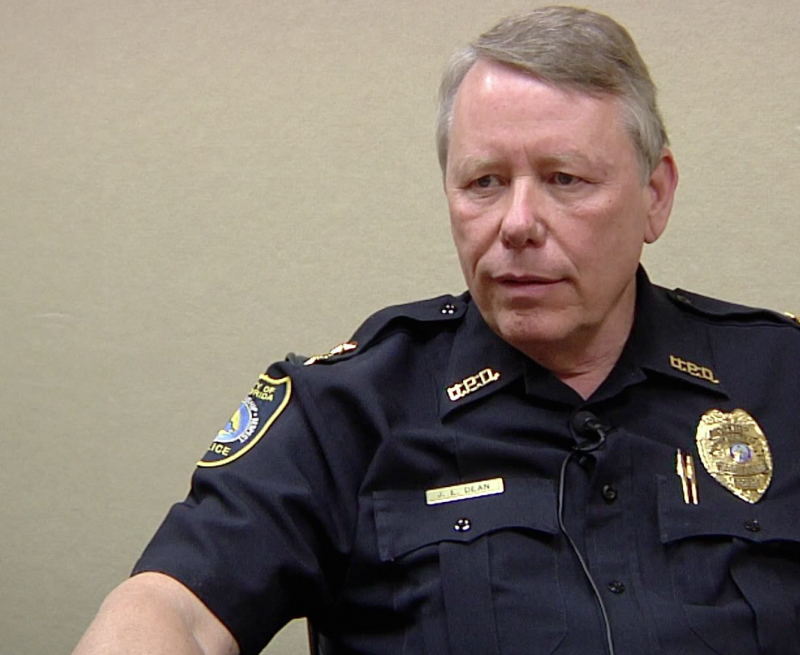
Photo taken from video shot by Carolyn Gordon.
A little over two months later, Carlson returned to his previous employer, The University of North Florida Police Department.
Florida Statute 1012.97 empowers university police to enforce and arrest as official law enforcement officers.
UPD Police Chief John Dean confirms he was aware of the investigation when Carlson applied.
”What he told us was, ‘I don’t think I hit her, I think she hit the curb and then slid up to my car. There was no evidence of any crash in regards to it so I don’t think I hit her,’ ”Dean said.
Dean said UPD did review the internal affairs investigation report, which said, “Investigation disclosed sufficient evidence to prove the allegation made in the complaint.”
The final decision to hire Carlson belonged to Dean.
”[Carlson said] After I took my foot off the brake, it’s possible that my car rolled back over her tire.,” Dean said. “He said but I do not believe a crash occurred between our two vehicles is what he told me.”
The report written by FHP said the intersection was a straight, level roadway.
The Atlantic Beach Police Department said in 2010 patrol cars had automatic transmissions.
According to their website, UPD’s organization reports to Vice President for Student and International Affairs Dr. Mauricio Gonzalez. Gonzalez declined a request from Spinnaker News for an interview.
Email Noor Ashouri at reporter10@unfspinnaker.com








